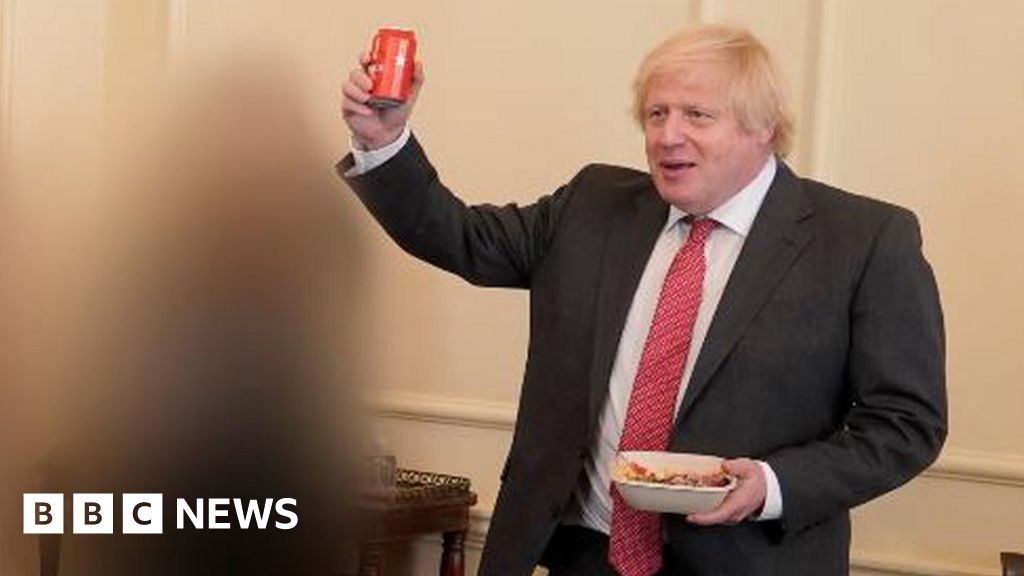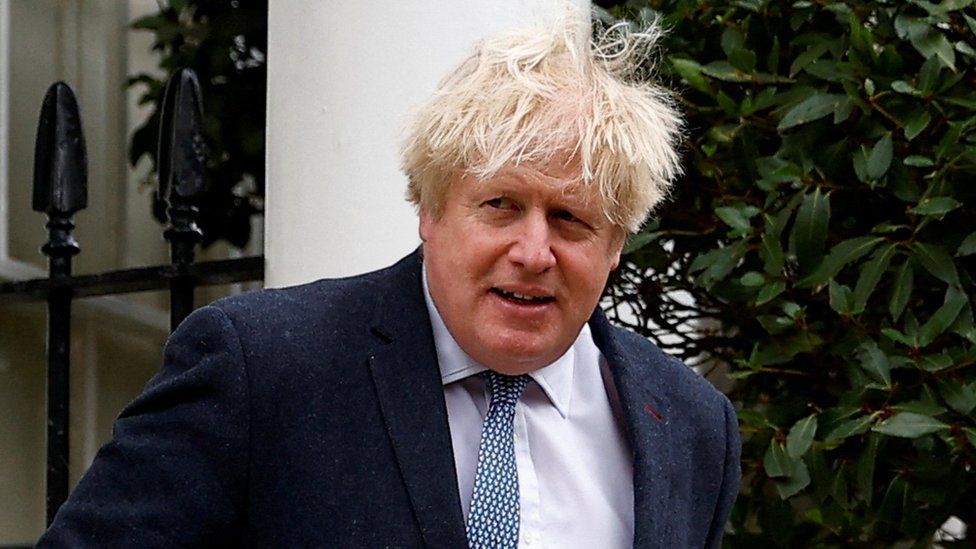
Boris Johnson has set out his defence against claims he misled MPs over parties in Downing Street during lockdown.
The former prime minister has accepted that he did indeed mislead Parliament when he said the guidance and rules were followed at all times – but he insists this was not on purpose.
So the focus now turns to whether it was “inadvertent, reckless or intentional”.
This will be the central issue when Mr Johnson is questioned in person by MPs on the Privileges Committee on Wednesday.
Here are some of the key arguments likely to feature in the televised grilling.
Moving the goalposts
Mr Johnson will challenge the committee’s pursuit of alleged “recklessness”.
His legal team believes it should consider only whether he “deliberately” misled the Commons.
And he himself has suggested the concept of “recklessness” is “unprecedented and absurd”.
Regulations versus guidance
Mr Johnson has said the committee should only be examining for accuracy his statements about compliance with Covid regulations and not the guidance.
The Commons had agreed that the committee look at his “assertions about the legality of activities in Downing Street”.
So Mr Johnson argues the committee is exceeding its remit because guidance – unlike regulations – isn’t legally enforceable.
This argument is likely to get short shrift from the committee.
The full resolution passed by MPs – and which set up its inquiry – specifically cites statements made by Mr Johnson, as potentially misleading.
That includes statements made on 1 December 2021, when Mr Johnson said “all guidance was followed completely in Number 10”; and on 8 December 2021, that “the guidance was followed and the rules were followed at all times”.
And the committee is concerned with whether what he said was true, rather than the distinction between regulations and guidance.
This video can not be played
To play this video you need to enable JavaScript in your browser.
Nobody told me
A major clash is likely to occur over a large pillar of Mr Johnson’s defence.
He claims he was never told that any of the gatherings at the heart of government – for which some attendees were subsequently fined – were against the rules, and that he was explicitly told some were compliant.
The committee will question why Mr Johnson relied on the advice of his then-communications chief, a political special adviser, rather than a permanent civil servant when establishing whether the 18 December 2020 “Christmas party” followed the rules.
And they will scrutinise whether that advice was ever intended to form the basis of a statement to the House rather than simply be used as a line for dealing with press inquiries.
Mr Johnson will say that a senior civil servant – his principal private secretary Martin Reynolds – also believed that rules were being complied with.
But in his evidence, he doesn’t say he took Mr Reynolds’s specific advice before making his now misleading statements to MPs.
(Mr Reynolds, incidentally, was the official who invited staff to “bring their own booze” to an event in the Downing Street garden in May 2020.)
And Mr Johnson says his then-parliamentary aide Andrew Griffith had been present when “multiple” Downing Street staff assured him that the 18 December party was within the rules.
The committee is likely to spend some time on whether the PM was assiduous enough in taking advice on compliance – and this may determine whether they believe he was “reckless” or not.
One rule for us
The committee has another line of attack – that Mr Johnson doesn’t need to rely entirely on officials to know if rules were followed or flouted.
They say the evidence they have already seen “suggests breaches of the guidance would have been obvious at the time he was at the gatherings”.
They refer to photographs which suggest there wasn’t much social distancing at some of the No 10 events which the then-PM attended.
But Mr Johnson is expected to put up a robust defence.
Firstly, that the photos were taken by No 10’s official photographer, and had rule-breaking been “obvious”, it certainly wouldn’t have been captured for pictorial posterity.
And secondly, that social distancing was all but impossible in warren-like Downing Street.
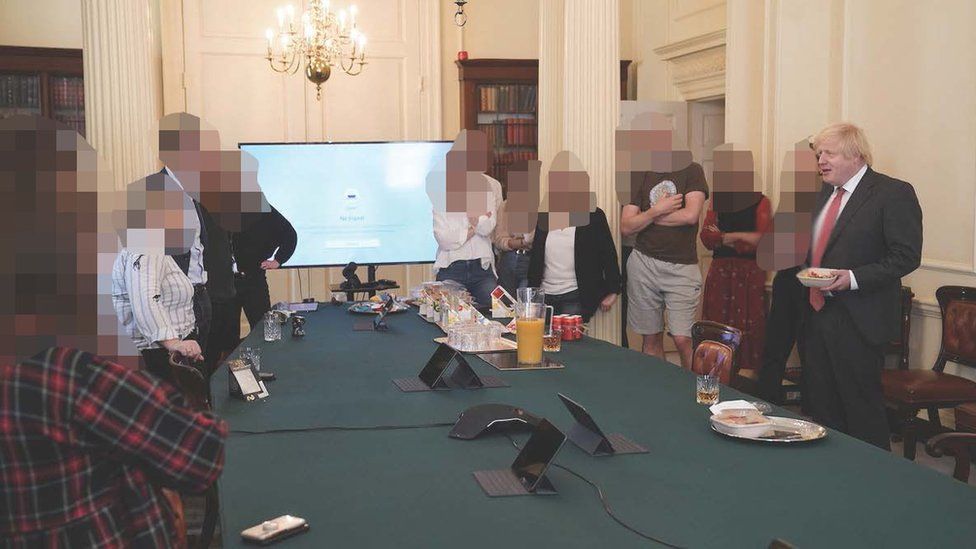
In his evidence, he says: “I did not believe that the guidance required full social distancing at all times.”
The committee, though, might also want to explore whether alarm bells should have rung in Mr Johnson’s head about an event he didn’t attend.
He admits he was told that the press office gathering of December 2020 involved drink, cheese and a Secret Santa.
When the cat (or Big Dog)’s away
The committee are suggesting Mr Johnson could have told the House more about gatherings at which he was present, but he will argue that most of the controversial events only slid in to breaches of the rules when he was absent.
And he will point out that since he was issued with only one Fixed Penalty Notice, then the police must have accepted that he did not breach any rules at any other events.
So he had no knowledge of wrongdoing to divulge.
And the former occupant of No 10 will say that it is only his outspoken ex-adviser Dominic Cummings who claims he was warned about the nature of the May 2020 “garden party” – and that given Mr Cummings “animus” towards him, he is discredited as a witness.
The question is whether the committee has obtained any written evidence to back up the Cummings claims.
Errors and corrections
Even if the committee were to accept that Mr Johnson’s inaccurate statements were “inadvertent” they will question him on why he did not correct the record sooner, when it became clear what he had said had been untrue, rather than await the final Sue Gray report.
The former PM will challenge the committee’s assertion that he was slow to correct errors, arguing it would have been wrong to comment during a live police investigation – which concluded in May 2022, six days before he corrected the record.
When is a party not a party?
There is an intriguing communication in Mr Johnson’s 52 pages of evidence to the committee.
On 10 December 2021, he sent a message to his then-communications chief Jack Doyle asking “is there a way we can get the truth about this party out there”.
This was a reference to the December 2020 “Christmas party”, which Mr Johnson himself hadn’t attended.
He says he used the word “party” as “shorthand” but the committee may suggest its use demonstrates he did have knowledge of the social, rather than work, nature of the event.
The committee also has WhatsApp messages where Mr Doyle seems to admit he is struggling to find a way of explaining why a gathering in June 2020 was within the rules and that this “blows another great gaping hole in the PM’s account”.
Related Topics
-
-
13 hours ago
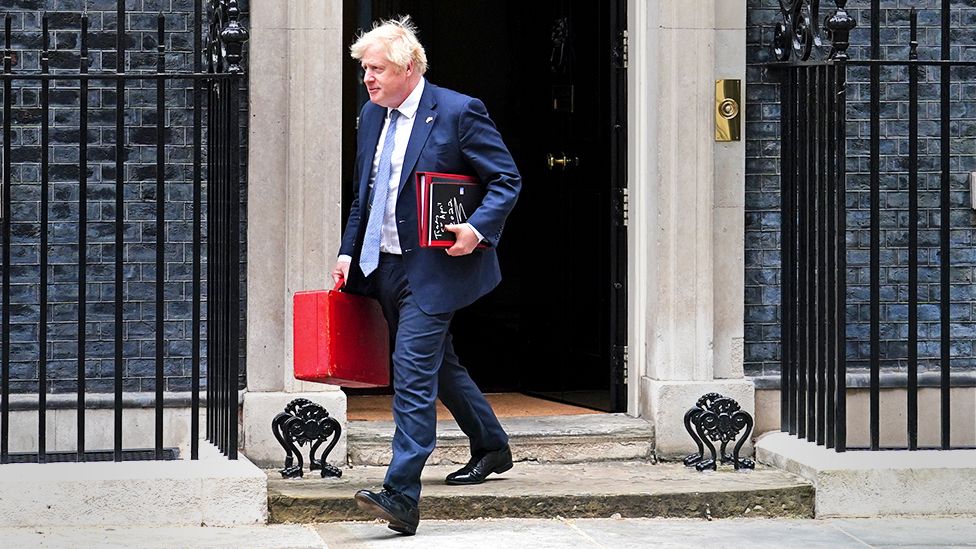
-
-
-
16 hours ago
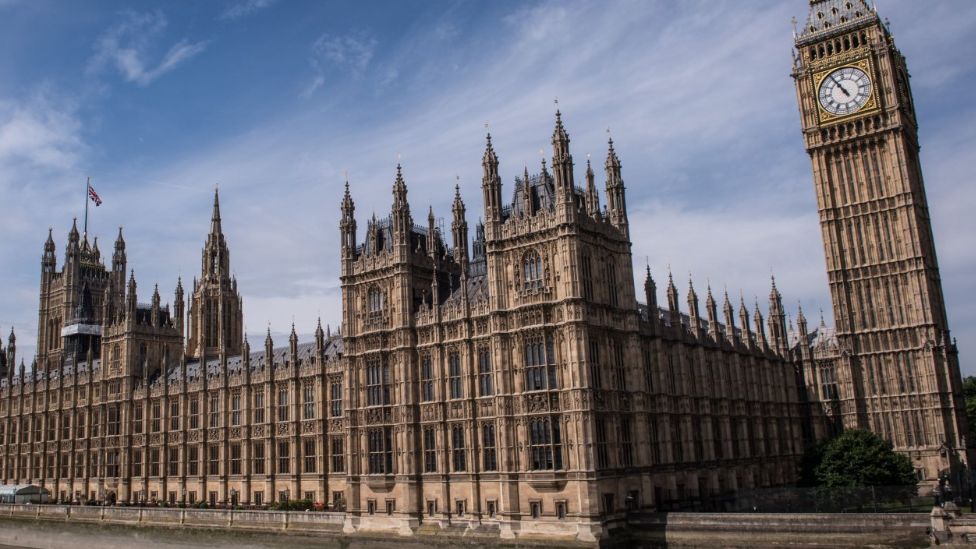
-
-
-
17 hours ago
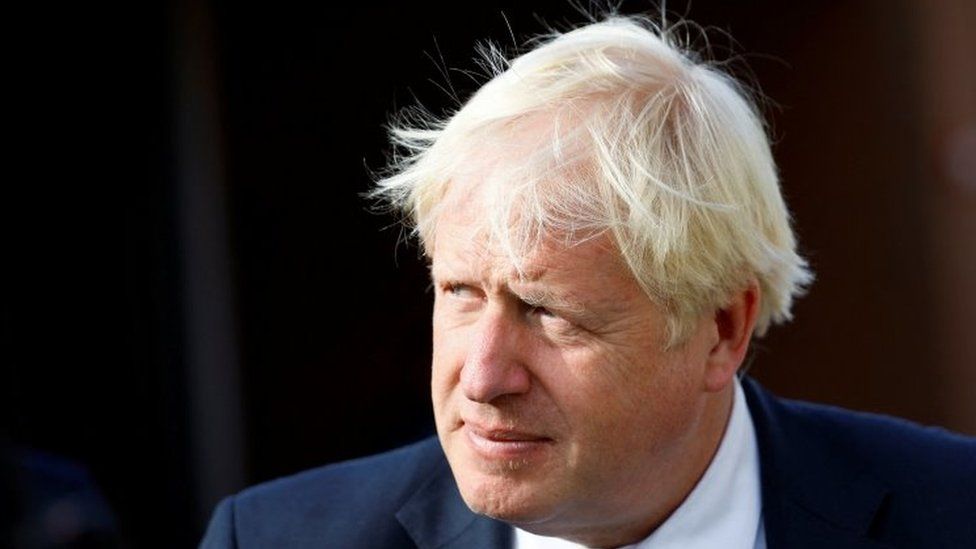
-
-
-
22 hours ago
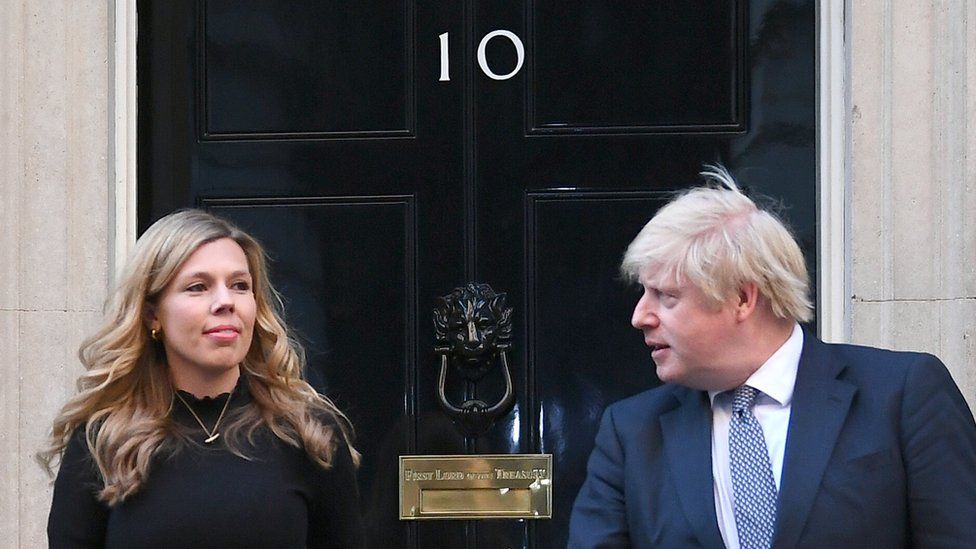
-
